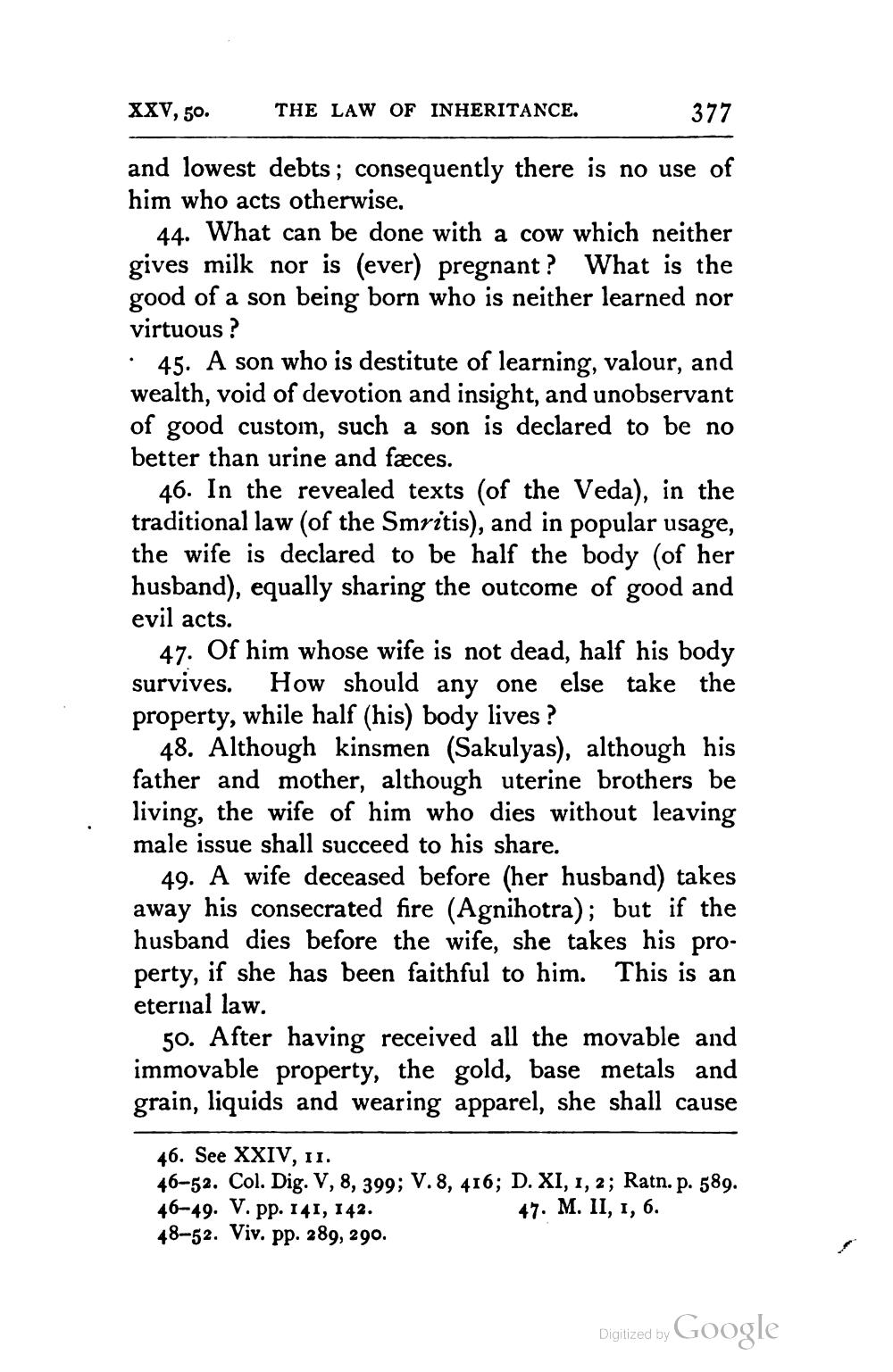________________
XXV, 50.
THE LAW OF INHERITANCE.
377
and lowest debts; consequently there is no use of him who acts otherwise.
44. What can be done with a cow which neither gives milk nor is (ever) pregnant? What is the good of a son being born who is neither learned nor virtuous ? • 45. A son who is destitute of learning, valour, and wealth, void of devotion and insight, and unobservant of good custom, such a son is declared to be no better than urine and fæces.
46. In the revealed texts (of the Veda), in the traditional law (of the Smritis), and in popular usage, the wife is declared to be half the body (of her husband), equally sharing the outcome of good and evil acts.
47. Of him whose wife is not dead, half his body survives. How should any one else take the property, while half (his) body lives?
48. Although kinsmen (Sakulyas), although his father and mother, although uterine brothers be living, the wife of him who dies without leaving male issue shall succeed to his share.
49. A wife deceased before her husband) takes away his consecrated fire (Agnihotra); but if the husband dies before the wife, she takes his property, if she has been faithful to him. This is an eternal law.
50. After having received all the movable and immovable property, the gold, base metals and grain, liquids and wearing apparel, she shall cause
46. See XXIV, 11. 46-52. Col. Dig. V, 8, 399; V.8, 416; D. XI, 1, 2; Ratn. p. 589. 46-49. V. pp. 141, 142.
47. M. II, 1, 6. 48-52. Viv. pp. 289, 290.
Digitized by Google




